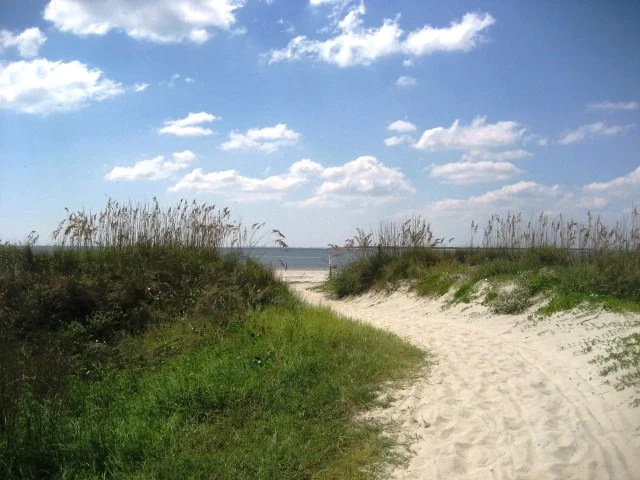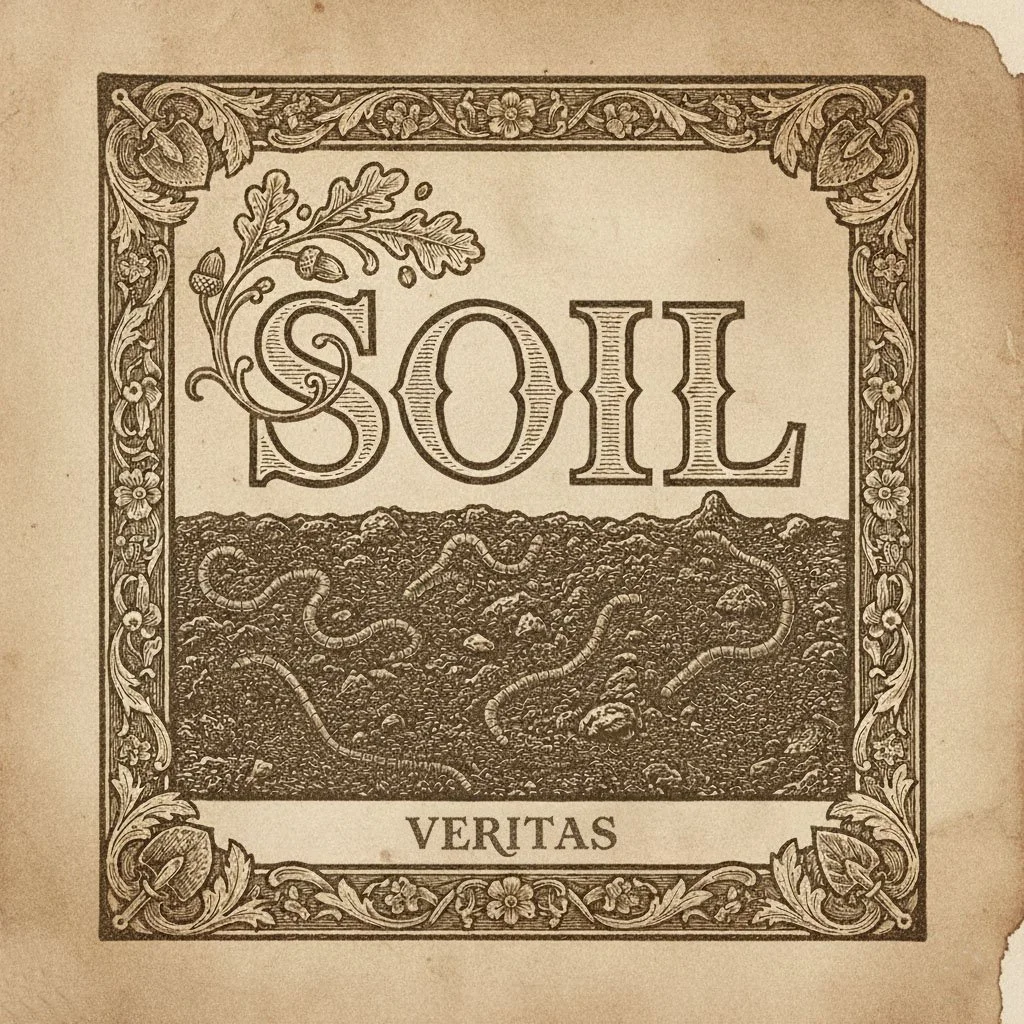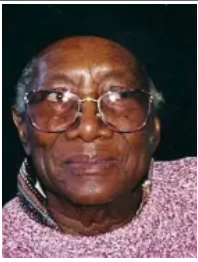
After Heade—Moonlit Landscape by Edouard Duval-Carrié, mixed media on aluminum, 96 × 144,” 2013
Photo courtesy of the artist
October 14, 2025
These are surreal and challenging times, and in such times, as we are called to witness what may well be the death throes of our democracy, the choice to anchor our imaginations and our activism in soil may seem … impractical: the whim of overprivileged, out of touch, cock-eyed idealists.
But we believe there could be nothing less practical, and nothing more soul-denying, than to drink too deep from the well of the “passing show”: the entire societal construct in this long unfolding, since 1492, of the “pretty poisons,” the political knife-fighting, gangsterism, now with “gaslighting,” AI manipulation and deep fakes adding to the confusion.
Instead we look to the natural world for a truth entirely devoid of ego, as we grope toward honoring the understanding that our ego selves are the conditioned actors on the stage, not the underlying and all-pervasive Presence.
Beyond being the source of all of our sustenance, the natural world is the only sure material vehicle for approaching the Presence. (The non-material approach is through meditation: surrender and release.)
We hold precious knowledge from our foremothers of many traditions, who understood that our outer self (the biome and larger biosphere), our mindbody (the intermediary self), and our inward being are all inextricably connected to Nature as manifestation, spirit and source. Cut off from that self-in-Nature, we are diminished no less than we would be if cut off from our own inner selves.
As a community of writers and creators, we ask, who speaks for the voiceless?—the vegetal, animal, and mineral creation that is being stripped to the studs by the relentless capitalist extraction. Thus, we offer this as a space for distinguishing between what’s illusory, what’s relatively real, and what’s truly real. Such knowledge has never been more necessary and, seemingly, never so short in supply.
As writers, we specialize in imagination; as eco-conscious writers, moreover, we imagine a supersensory connection developing among us, our readers in this space, and the truth of the underlying Presence.
We look to the ground beneath our feet and, even in this land that was stolen, that saw alien peoples from distant places violently grafted upon the native rootstock, we are learning how to read the authentic signs and synchronicities in “nature” and understand the very nature (essential characteristics) of the natural world that includes humans.
Our highest aim is to share our enchantment—with gardens no less than rivers, mountains, trees, forests, animals and the other earthly elements that can help us connect with the timeless, the shapeshifting, the imaginal. As Cynthia Bourgeault writes in Eye of the Heart, A Spiritual Journey into the Imaginal (2020):
“… when all the intellectual attractions have been stripped away, and [the imaginal realm] is allowed to speak in its own native tongue, what it speaks of, with surprising simplicity and directness, is beauty, hope and a mysteriously deeper order of coherence and aliveness flowing through this earthly terrain connecting it to the infinite wellsprings of cosmic creativity and abundance … .”
In drawing inspiration from the natural world, we are mindful of the necessary cycles of creation and destruction—the ferocity of wild animals and storms and the tenderness of new growth and maternal love—all love. Within this dynamic, human beings have a unique agency to optimize the creative aspects and minimize unnecessary harm from the destructive aspects, if only we choose to exercise it.
We maximize the creative agency in grounding ourselves in the authentic reality of the natural world and in human community offering mutual support and creative abundance. In doing so, we not only fortify ourselves during perilous times, we are envisioning how a more equitable participatory democracy can be built and how circular economies can be developed with the consequent flourishing of environmental systems.
Into this vanishing
where everything can end or start,
you postpone returning
for a bit, as you rise and rise
into the holy hush of pines,
leaving your old cable car
creaking far behind.
Excerpt from Neeman Sobhan’s “Season’s End/Abetone" in her poetry collection, Calligraphy of Wet Leaves (2015)
Photo: Chris Gordon/Unsplash
Opinion and praise
-

Article 1
Praesent vestibulum ex sit amet elit consectetur elementum non in dolor. Sed sodales eu ligula vel luctus.
-

Article 2
Sraesent vestibulum ex sit amet elit consectetur elementum non in dolor. Sed sodales eu ligula vel luctus.
-

Article 3
Kraesent vestibulum ex sit amet elit consectetur elementum non in dolor. Sed sodales eu ligula vel luctus.
-

Article 4
Hraesent vestibulum ex sit amet elit consectetur elementum non in dolor. Sed sodales eu ligula vel luctus.
-

Article 5
Lraesent vestibulum ex sit amet elit consectetur elementum non in dolor. Sed sodales eu ligula vel luctus.
-

Article 6
Sraesent vestibulum ex sit amet elit consectetur elementum non in dolor. Sed sodales eu ligula vel luctus.
March 18, 2025 Redemption of Justice Clarence Thomas down by the river side
This page does not “flow” properly on mobile screens. For the full effect, view it on a larger screen.
Read as you float down to South Carolina.
Ride down the river with Ettaphine Tyler as she heads back home.
Ettaphine Tyler, born in Florence, South Carolina in 1907. Transitioned into an angelic ancestor in 2011.
Welcome home, brother Clarence!
We’ll welcome Justice Clarence Thomas back home and baptize him in the Combahee river where that great gunboat raid freed almost 800 enslaved people.Call in the elders of the Gullah nation to reclaim Brother Clarence in waters sacralized by the memory and spirit of Aunt Harriet. Blasphemy you say!
But the viability of democracy pivots on Supreme Count rulings as we approach multiple constitutional crises so “we who believe in freedom” in the memory of Ella Baker cannot rest. How did Justice Clarence Thomas become so antagonistic, so seemingly devoid of conscience? And can he be saved?
Not a chance, you say!
But hold up! Here comes Brother Clarence now, dressed in a white gown. He does like gowns.When he was a young boy, we were striving to be bronze versions of the American Dream in Savannah's Cuyler-Brownville community of doctors, teachers, proper preachers, black business people in a bustling section of grocery stores, restaurants and beauty shops. Clarence Thomas was from the outskirts of town, a place called Pin Point. Growing up, Thomas was disdained by both black and white folks, says Kendra Hamilton in Romancing the Gullah and referring to the Thomas biography, Supreme Discomfort. Thomas went to a segregated black Catholic High School and aspired to don the Catholic priest gown. But the school's white rector dashed that dream, saying Clarence’s Geeche Gullah dialect would never make the grade. And particularly cruel was how this baby — black grandmas called almost grown and grown children "baby" as an expression of poetic affection -- how this grandma’s baby Clarence was teased as being “ABC” (America's blackest child) by other black youth.From Savannah about 107 miles up the coast to Charleston, Dubose Heyward imagined us living in an abandoned, dilapidated mansion called Catfish Row but the real action was in North Charleston where other bronze American dreamers were dis-remembering the appreciation of distinctive African facial features and deep melanin. Because back out in the backwaters, when the livin’ was easy for some, and particularly for the baby whose white daddy was rich and mulattress mama, “good lookin’ " -- back out there on the land, away from the prying eyes of civilized society, black and yella gals got plucked to serve the master’s and his sons’ voracious appetites and birthed black self-directed shame.Slurs like “ABC” had their counterparts in racist terms referring to impoverished or rural white bumpkins who were called “red necks” and "white trash" by white southern aristocracy and who were consigned to live on the disgraceful "Tobacco Row."Gullah saving graces include being unswervingly "spiritual" people -- people like Toni Wynn's surrogate grandmother Ettaphine Tyler from South Carolina. Miss Ettaphine lived to be 103. Her parting words were, "Always remember to be kind." Toni Wynn recalls Miss Ettaphine's sterling qualities, including being a life-long gardener in this essay.(will insert link to Toni's page)
Welcome Clarence home and reconnect him with his Geechee Gullah roots.Baptize him to save him and our democracy too.
The ceremony down by the riverside will include testimonies.Can I get a witness?on that great gettin’ up mornin’
Doris Ulman, Preparing for Baptism, c. 1929-1931 (public domain)Gonna lay down my burden down by the riverside
“Always remember to be kind.”
Ettaphine Tyler’s final words to her surrogate granddaughter, Toni WynnDoris Ullman, Baptism,1930 via the Ogden Museum of Southern Art (permission pending)“Down by the Riverside" is an African American spiritual with roots dating back before the Civil War. The antebellum origin makes the “ain’t gon study war no more” declaration particularly metaphorical while signifying a profound clarity of goodness and mercy.
Sister Rosetta Tharpe sings “Down by the Riverside” here.
Ain’t gonna study war no more, no more
Up on the river side
upupupupupgettin' the spirit upontheriver sidewe rejoiceDown in the murky Combahee waters
strains of old songs …
Deep river, my home is over Jordan. deep river I want to cross over into camp ground
Brother Clarence is dipped backwards into the waters and wearily lays his burden down
… roll, ol’ Jordan, roll…
The waters send shivers through his body
and expel them as ripples into the river
As his head is lifted Clarence sees a dragonfly circling above
a winged ambassador with its 360 degree vision
Clarence remembers how to read
signs in nature
yes a winged blessing
And as Clarence is healed from the transgressions of the Catholic rector and taunters who dashed his aspirations, destroyed his confidence and prodded him from the spiritual path, so healed are we.
Love save us all!
Can I get a witness? 











